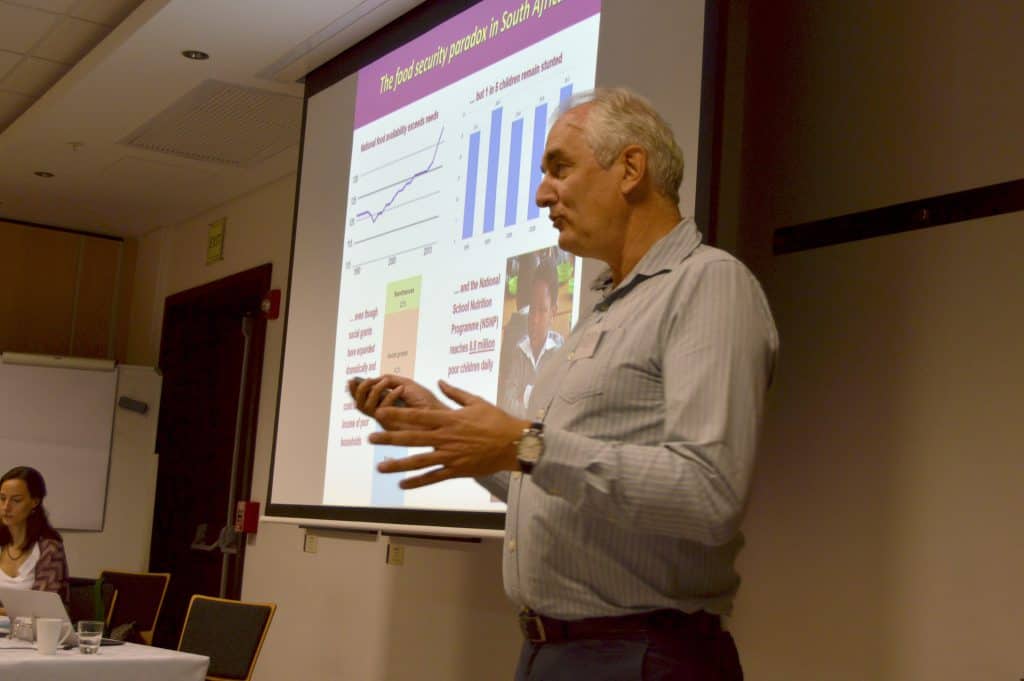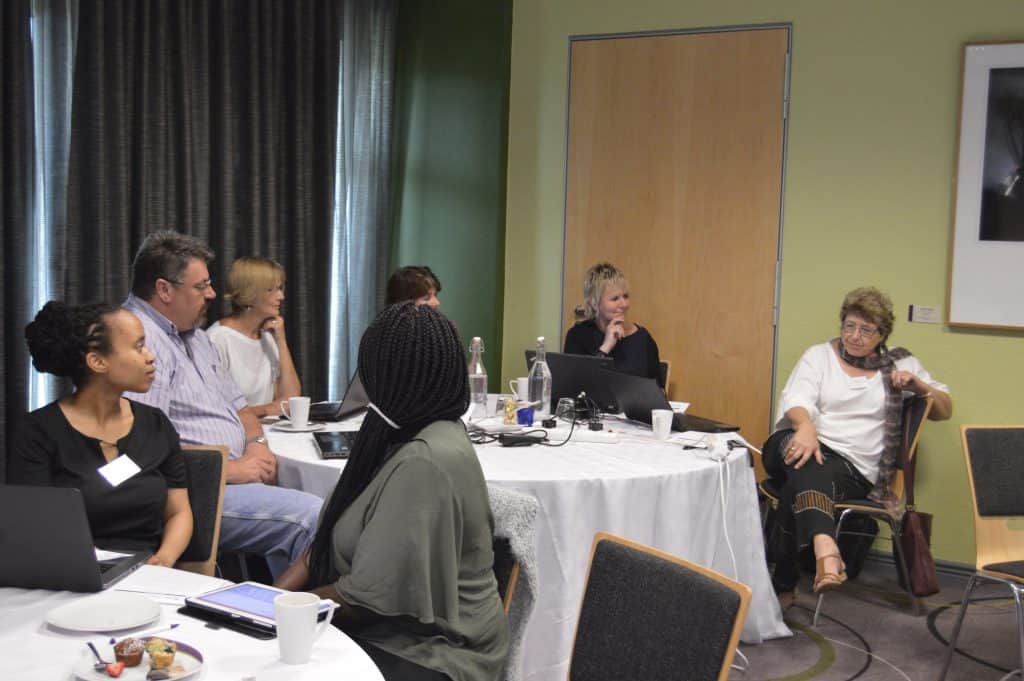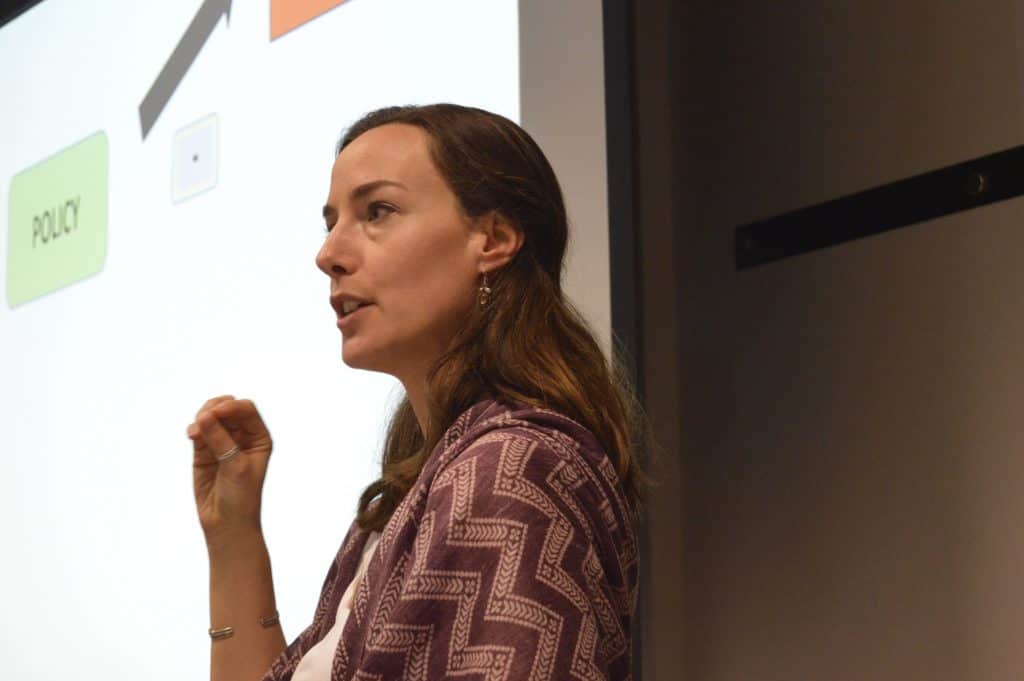
Dr Stephen Devereux: Research Fellow, Institute of Development Studies at the University of Sussex, UK, and SARChI in Social Protection and Food Security, affiliated to the DST–NRF Centre of Excellence in Food Security and the Institute for Social Development at the University of the Western Cape, South Africa.
Academics, government officials and civil society activists, met in Cape Town on 12 December 2016, to brainstorm the concept of shame as it relates to hunger, food insecurity and social protection in South Africa.
The interactive workshop saw participants engage in an interesting yet somewhat uncomfortable topic, with the goal of identifying relevant research questions and research methods for investigating the hypothesis that shame contributes to hunger and exclusion from social protection in South Africa. The workshop was also aimed at reflecting on shame and its role in ‘promoting a good life’, particularly in reference to development debates.

Our goal was to debate the meaning and understanding of shame, consider potential positive and negative aspects of shame and also discuss whether or not shame has a role in wider development goals of reducing poverty and promoting wellbeing

Dr Keetie Roelen is a Research Fellow at the Institute of Development Studies at the University of Sussex, UK, where she is a Co-Director of the Centre for Social Protection.
The morning session included reflections on (professional and personal) engagements with shame and focused on conceptual questions about the meaning of shame as well as the linkages between shame and poverty. The afternoon session focused on questions about stigmatisation and shaming in policy and public discourse and explored plans for future research.
Participants agreed that researching the topic at multiple levels i.e. the political, programme and personal, might be a good place to start in exploring this topic. The workshop closed with a consensus that participants from different institutions and disciplines will explore opportunities to work together on potential research in the thematic areas of shame, poverty, food insecurity and social protection in South Africa.
About workshop facilitators:
Dr Stephen Devereux is a Research Fellow at the Institute of Development Studies at the University of Sussex, UK, where he is a Co-Director of the Centre for Social Protection. He is also the NRF–Newton Fund (SA-UK) Research Chair in Social Protection and Food Security, affiliated to the DST–NRF Centre of Excellence in Food Security and the Institute for Social Development at the University of the Western Cape, South Africa. As part of the South African Research Chairs Initiative (SARChI), Stephen is planning to ‘mainstream’ shame in his research on social grants and food security in South Africa. Dr Keetie Roelen is a Research Fellow at the Institute of Development Studies at the University of Sussex, UK, where she is a Co-Director of the Centre for Social Protection. She works on social protection, poverty dynamics and child poverty and is currently leading the new research initiative ‘Shame in development’. She recently submitted a proposal to the European Research Council (ERC) on ‘Shame in development’ focusing on the manifestations of shame in public works programmes in India and South Africa, proposing a mixed methods investigation of shame among programme participants, staff and community members and how this interacts with poverty, programme implementation and improved outcomes.related Articles
What would an anti-hunger budget have looked like?
Dr Busiso Moyo is a postdoctoral researcher with Union Against Hunger (UAH) founder-member, the DSTI-NRF Centre of Excellence in Food…
Union Against Hunger: Academia, civil society join forces to combat a ‘slow...
The Union Against Hunger is a coalition of forces from academia and civil society. Photo Alaister Russell/CoE-FS. The recently launched…
Black South Africans, in particular, face chronic and seasonal hunger
Prof Stephen Devereux is a Principal Investigator with the CoE-FS. Photo Icon Media Productions/CoE-FS. At the 5th International Social Justice…



